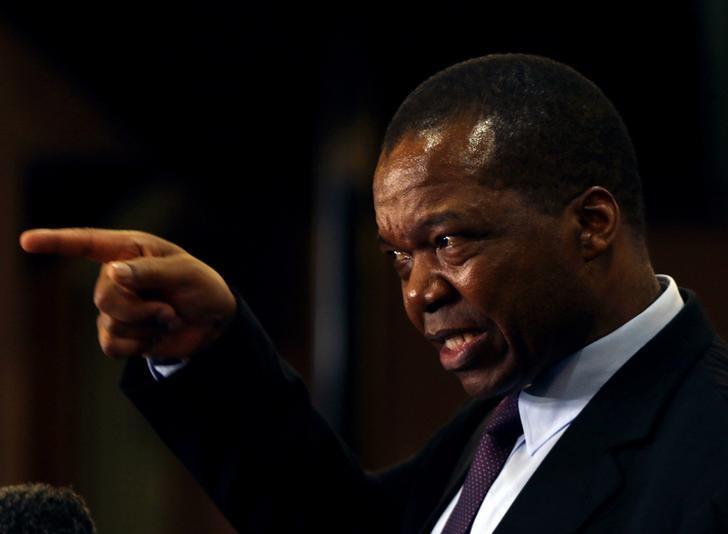Tobacco farmers pile pressure on Mangudya
Tobacco farmers are seeking an upward retention of export earnings before the opening of the selling season to at least 70 percent, which reflects minimum real cost of production in foreign currency.
The farmers have expressed concern over the disparity between the parallel market exchange rate of approximately $125:1 US$ and the official auction exchange rate of about $83:US$1 that they are going to receive.
The tobacco selling season is expected to start on April 7.
The Reserve Bank of Zimbabwe governor Dr John Mangudya, raised export earnings which can be retained by tobacco growers from 50 to 60 percent this season, a threshold which now applies to all exporters.
However, authorities allowed the economy to charge US dollars for goods and services and tobacco farmers complain that all costs were pegged in foreign currency including labour, fertilisers and inputs supplied at inflated prices by contractors and transport among other key factors.
The US dollars were mainly sourced from the unofficial market with premiums between 30 and 45 percent.
“We appreciate that for the purpose of retention levels tobacco growers will now enjoy the same level as other exporters, that is 60 percent in foreign currency payable into growers FCAs and 40 percent converted at the prevailing auction rate on the day of sale payable into local currency growers’ account, both amounts payable net of foreign currency denominated loans,” Zimbabwe Tobacco Association chief executive Rodney Ambrose said.
“However, the 60 percent falls short of our foreign currency cost of production component which reflects a minimum of 70 percent.
“Growers’ viability will not improve with the retention levels announced and we plead with the authorities to review the foreign currency retention level before the start of the selling season.”
Ambrose noted that the payment modalities would worsen growers’ viability this season and some might abandon tobacco, one of the major foreign currency earners for the country.
“The stagnant growth this season reflects this. Every season growers find themselves with little profit or in debt with their contractor.
“This debt is in US dollars and carried forward to the next season, with more US dollars loans and debt added.
“Ninety percent of growers are now 100 percent US dollars borrowed from their contractor, implying no new US dollars comes into the country until the loans are repaid.
“So while on paper tobacco sales may earn US$500 to US$600 million per season, real inflows are about a quarter of this. Roll out of diversification cropping programmes for tobacco growers remain paramount so that their general livelihoods are protected, as tobacco viability diminishes each season,” said Ambrose.
He added that tobacco farming was no longer attractive crop to venture or expand into and such growth would remain subdued.
Dr Mangudya did not respond to questions sent by time of publication.
Pricing
Zimbabwe, which ranks among the world’s largest producers of the “golden leaf”, has a dual marketing system where the produce is sold through both auction and contract.
The farmers argue pricing of contract tobacco (95 percent of national production) cannot continue to be based on the
minimum tobacco prices paid on the auction floors (5 percent of national production).
“This is outdated legislation that needs to be speedily changed by the authorities.”
Already, some middlemen are approaching farmers with a view of buying the commodity directly from their farms and this may result in widespread breach of contracts.
“Unfortunately unviable payment modalities also contribute to this practice,” said one analyst.
“If one takes a floor price of US$2,50/kg — apply 60:40 in real terms the farmer has lost US$0,30c.
“So the farmer is at US2,20/kg. Remove handling, packaging, transport, marketing costs, levies at US$0,50c, the farm gate price comes at US$1,70/kg. At times the farmers take the option to sell his tobacco at farm gate for USD cash, even though lower than floor price.”
The announcement of the opening of the auction and contract selling floors as announced by the TIMB was done without growers consultations.
“It is disheartening to note that despite growers bodies formally writing to the Tobacco Industry and Marketing Board requesting for time to finalise payment modalities, the board proceeded to engage with the Honourable Minister of Lands, Agriculture, Fisheries, Water and Rural Resettlement knowing fully well growers, the primary producers, had not submitted any input into the date.
“This lack of consultation by the regulatory body on such an important issue is very concerning,” said Ambrose.-ebusinessweekly









